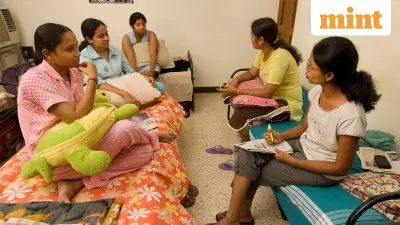
Growing concerns over declining local student representation have sparked a significant movement demanding separate reservation quotas at the Central University of Karnataka (CUK). The university, located in Kalaburagi district, is facing increasing pressure from various stakeholders who argue that students from Karnataka are being systematically marginalized in the admission process.
Alarming Decline in Local Admissions
Recent data reveals a troubling pattern at CUK, where the percentage of students from Karnataka securing admissions has dropped substantially. According to university records, only 15-16% of students in the current academic year hail from Karnataka, marking a significant decrease from previous years. This sharp decline has raised serious questions about equitable access to higher education for local students.
The situation becomes particularly concerning when examining specific programs. In many postgraduate courses, the representation of Karnataka students has fallen to single-digit percentages. This pattern has persisted despite the university's location within the state and its mandate to serve the educational needs of the local population.
Political and Social Response
The declining numbers have triggered strong reactions from political leaders and educational activists across Karnataka. Members of Parliament from the state, including Rajya Sabha member Iranna Kadadi, have raised the issue at the highest levels, demanding immediate intervention from the central government.
Several Karnataka MPs have submitted formal representations to the Union Ministry of Education, emphasizing the need for a separate reservation system that would ensure adequate representation for local students. The movement has gained momentum with support from various student organizations and educational rights groups who argue that the current admission patterns violate the spirit of establishing central universities in different regions.
Historical Context and Current Challenges
The Central University of Karnataka, established under the Central Universities Act, 2009, began operations from the 2009-10 academic year. Unlike state universities, central universities typically follow a national-level admission process without specific regional quotas. However, stakeholders argue that the unique circumstances of each region warrant special consideration.
Proponents of the separate quota system point to similar arrangements already implemented in other central universities across India. Several institutions located in different states have incorporated regional reservation policies to ensure balanced representation and address local educational needs.
The university administration acknowledges the concerns but highlights the complexities involved in implementing regional quotas within the existing legal framework. Officials note that any changes to the admission policy would require approval from relevant governing bodies and potentially legislative amendments.
Broader Implications for Higher Education
This developing situation at CUK reflects larger questions about regional representation in central educational institutions across India. As similar concerns emerge in other states, the outcome of this demand could set important precedents for how central universities balance national character with regional equity.
Educational experts suggest that the solution might require a nuanced approach that considers both merit-based selection and regional representation. Some propose implementing a hybrid model that reserves a certain percentage of seats for local students while maintaining the institution's national character.
The ongoing debate has also highlighted the need for better preparation and support systems for Karnataka students to compete effectively in national-level entrance examinations. Several stakeholders have called for state government initiatives to enhance the competitive capabilities of local students.
As the discussion continues, all eyes remain on the Union Education Ministry's response to the growing demands. The decision could significantly impact not only CUK's admission policies but also establish guidelines for similar situations in other central universities across the country.





